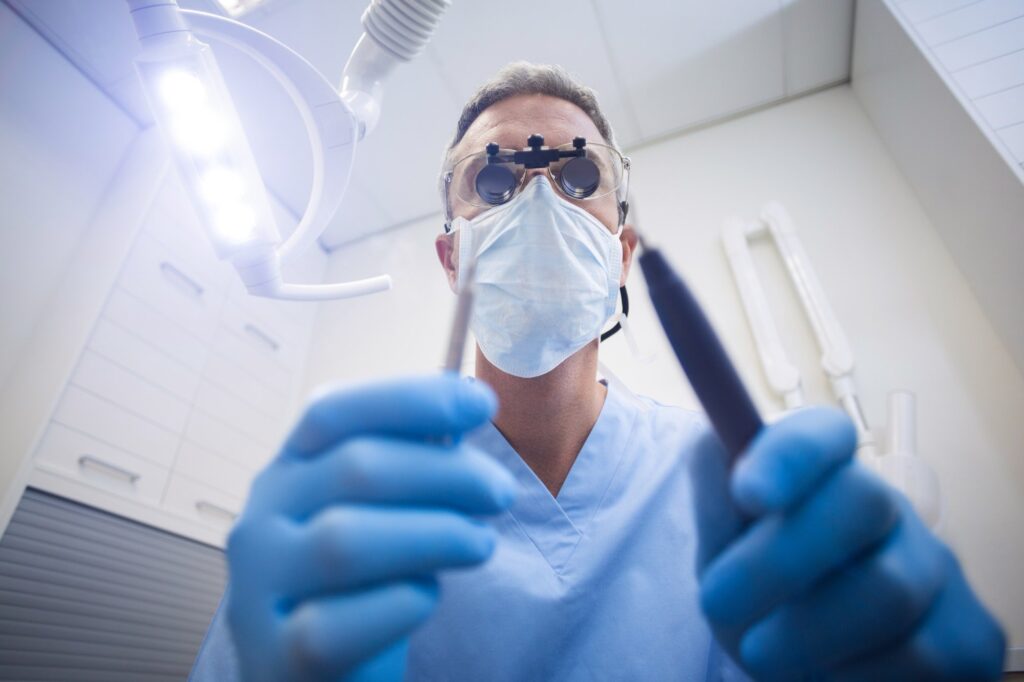A sinus infection can be a painful and uncomfortable experience. Many people are unaware that this condition can cause tooth pain. This connection between sinusitis and tooth pain often leads to confusion. Understanding why dental pain occurs during a sinus infection is essential for relief.
Let’s explore whether a sinus infection can cause tooth pain and how to manage it.
How Is Sinus Infection Linked to Tooth Pain?
Our sinuses are air-filled cavities located in the facial bones. The maxillary sinuses are situated just above the upper teeth. When these sinuses become inflamed, pressure and pain can occur. This pain can radiate to the upper teeth, leading to tooth pain. Therefore, the connection between sinus infections and dental pain is rooted in the sinus cavities’ proximity to the upper teeth.
What Are the Signs of Sinus Tooth Pain?
- A dull ache or constant ache in the upper teeth or jaw.
- Facial pain or pressure, especially around the eye socket and cheekbones.
- Nasal congestion, a runny nose, or a stuffy nose.
- Difficulty identifying whether the pain is from dental issues or sinus pressure.
- Sinus infection symptoms such as headache, nasal discharge, and a reduction in the sense of smell.
What Causes Sinus Infection Tooth Pain?
Nasal Congestion and Sinus Pressure
Sinus infections cause inflammation and buildup of mucus in the nasal passages. This congestion leads to pressure in the sinus cavities. The maxillary sinuses, located near the upper teeth, can press against dental nerve endings when inflamed. The pressure from this congestion can cause a painful sensation in the upper teeth or jaw. This condition results in what is known as sinus tooth pain.
Acute Sinus Infection
Acute sinus infections develop rapidly and are often caused by viral or bacterial infections. During an acute sinus infection, inflammation in the maxillary sinuses increases, leading to increased pressure on the upper teeth. Tooth pain from an acute sinus infection can feel like a dull ache or a constant ache. It’s crucial to differentiate this pain from actual dental issues.
Maxillary Sinusitis
Maxillary sinusitis specifically refers to inflammation of the maxillary sinuses. This condition can cause significant pain in the upper molars. The direct pressure from the swollen sinuses can irritate the dental nerve endings, mimicking dental problems. Treating the sinus infection is necessary to alleviate the dental pain.
Chronic Sinus Infections
Chronic sinusitis can last for weeks or even months. This long-term inflammation can cause persistent tooth pain. The continuous pressure from the inflamed sinuses affects the upper teeth over an extended period. This type of pain can be difficult to handle. Consulting with a qualified healthcare provider is often necessary.
Sinus Inflammation
Sinus inflammation can involve the frontal, ethmoid, and maxillary sinuses. When these areas become swollen, pain signals may extend to nearby teeth. Sinus pain often accompanies dental pain symptoms, which can be confusing for patients. However, addressing sinus inflammation can help relieve dental pain.
How to Relieve Sinus Infection Tooth Pain
Drink Fluids and Use a Steam
Drinking plenty of water helps thin the mucus in the sinuses. Additionally, using a steam inhaler or taking a hot shower can further alleviate congestion. The steam opens nasal passages, reducing sinus pressure. This, in turn, eases dental pain caused by sinus pressure. Hydrating consistently is essential for recovery.
Eat Spicy Foods
Spicy foods can help clear nasal passages. Consuming spicy dishes can provide temporary relief from nasal congestion. This reduction in congestion can decrease sinus pressure. Subsequently, the dental pain related to sinus infections can diminish. Be cautious if you have sensitive teeth to avoid further discomfort.
Use an Expectorant
An expectorant can help loosen the mucus in your sinuses. Over-the-counter expectorants can facilitate mucus drainage. Nasal irrigation with a saltwater solution is another method for relief. This action reduces the backlog of mucus, causing pressure. Therefore, it can help reduce sinus-related dental pain.
Hum Yourself to Sleep
Humming can create vibrations in the nasal passages. These vibrations help open the sinuses and facilitate mucus drainage. This technique can be especially helpful before bed. Reduced sinus pressure can lead to better sleep. Consequently, it can provide relief from sinus tooth pain.
Position Your Head for the Best Drainage
Proper head positioning can promote sinus drainage. Elevating your head while sleeping helps gravity do the work. This position facilitates mucus drainage from the nasal passages. A decrease in sinus pressure can alleviate dental pain. Consistent home care routines can be beneficial.
Can Sinus Infection Cause Tooth Pain?
Yes, a sinus infection can cause tooth pain. The primary reason is the close proximity of the maxillary sinuses to the upper teeth. When these sinuses become inflamed, the swelling can press against dental nerve endings. This pressure leads to pain in the upper teeth, mimicking dental issues. Distinguishing between sinus tooth pain and dental pain is crucial for appropriate treatment.
Therefore, while a sinus infection can cause dental pain, it’s important to consult with a dentist to diagnose and treat your condition accurately. Sinus tooth pain and dental pain can have overlapping symptoms, and only a professional can determine the exact cause.
Get Expert Dental Care for Your Sinus Tooth Pain at Casey Dental
Understanding the connection between sinus infections and dental pain is essential for effective relief. If you are experiencing sinus tooth pain, it’s essential to address the issue promptly. At Casey Dental, our professional team is ready to help you with your dental care. Our multi-specialty practice is equipped with the latest technology for your oral health needs.
Contact us today to schedule an appointment. Let Casey Dental help relieve your sinus tooth pain and improve your quality of life.






